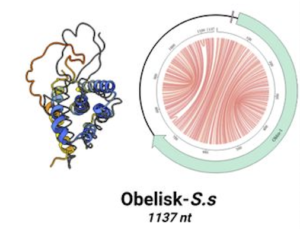What the Helminth! Are “Purposeful Parasites” The Next Probiotics?
If the idea of utilizing parasitic worms as therapy makes you squirm, you’re certainly not alone. Sure it sounds strange, but the use of “purposeful parasites” is not as far-fetched as it seems. Researchers like Duke University’s William Parker, PhD, believes certain types of helminths can be helpful in treating immunological, gastrointestinal, autoimmune, and even cognitive disorders.





 It’s an increasingly common scene, playing out in clinics all over the country: A patient comes in with a worried look and a fat printout from 23andMe. She wonders what all those scary red boxes mean, and whether cancer, Alzheimer’s, or some other bad disease is lurking in her genes.
It’s an increasingly common scene, playing out in clinics all over the country: A patient comes in with a worried look and a fat printout from 23andMe. She wonders what all those scary red boxes mean, and whether cancer, Alzheimer’s, or some other bad disease is lurking in her genes.

